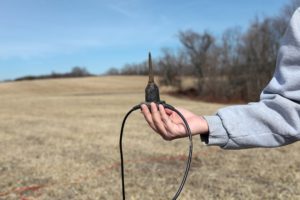All Categories
Featured
Table of Contents
Geophysical Surveys in Kenwick Oz 2022
Link with MBA programs seeking prospects like you. Research study. Link with master's programs around the nation to get an edge over the competitors.

A geophysicist studies numerous aspects of the earth. According to the U.S. Geological Survey, they study gravity, magnetic, electrical, and seismic activity events. Geophysicists also record, examine, and take measurements of geographic features and abnormalities. Watch a video to learn what a geophysicist: Geophysicists should earn a minimum of a bachelor's degree; however, this is for an entry-level position.
If you desire research you need to pursue a Ph. D. Undergrad coursework generally includes geology, mathematics, ecological science, or physics. Postgraduate degree need more particular studies in the specialty of choice. Areas can consist of oceanography, atmospheric physics, climatology, planetary, petroleum, environmental, and mining. Job potential customers are higher if you have a strong background in computer technology or technology.
Geophysical Consulting in Currambine Aus 2020
Access to these opportunities may be restricted depending upon where you live; however, internships or summer season programs with geophysical business, university geophysics department, or the U.S. Geological Study can be options. You can discover a list of a list of chances on the United States Geological Survey (USGS) websites' Path Programs tab (opens in another link).
Geophysicists also work with computers while researching, so computer system courses can likewise be practical, as mentioned earlier in this post. Many geophysicists specialize in an area of geophysics.
A geophysicist's tasks can consist of measuring, tracking, and recording information from different physical residential or commercial properties on earth. Geophysicists often have to travel worldwide to take a look at geological occasions that have actually happened or might have been forecasted.
Geophysical Surveys Definition & Meaning In Stock ... in South Guildford Oz 2023
Jay Wellik, a geophysicist, studies volcanos. His area of competence in geophysics is looking into why volcanos appear and what indicators there might be that an eruption might happen. He tracks seismic activity and then follows what takes place in the past, throughout, and after a volcano emerges. Geophysicists normally work full-time hours; however, they frequently work irregular hours, as pointed out formerly.

You can find extra information about Geophysicists together with extra academic products on the U.S. Geological Study site (links open in a brand-new window). Laura Stern, of the U.S. Geological Survey at the Gas Hydrates Laboratory in Menlo Park, California: We make a number of different hydrates in the lab.
We also make carbon dioxide hydrate, ethane hydrate, gas, a variety of various structures. Liquid nitrogen is very cold. It has to do with 100 degrees colder than the temperature at which these hydrate samples would dissociate, when they would break down to ice plus gas on the tabletop. In here we have a little piece of methane hydrate.
Geological And Geophysical (G&g) Surveys in Bassendean Oz 2020
The samples we make, their polycrystalline. They appear like snow, it appears like compacted snow however honestly, it does include gas inside. Take a little piece off here and as it heats up, you'll begin to see it pop. It's going back to ice plus gas and after that as the ice would melt as it continues to warm, it will end up being water plus gas.
My name is Steve Kirby, I'm a Geophysicist here at the U.S. Geological Study in Menlo Park. I deal with Laura Stern who is also a Geophysicist in this laboratory that is devoted towards the investigation of planetary ices and gas hydrates. Gas hydrates in nature happen in really remote locations and they are very complicated with the interactions and conditions that they form under and samples that are brought up are under some sort of alternation or decomposition.
This is an unusual lab and there are just a handful of them worldwide and we are really fortunate to be here at the Geological Survey and to have the chance of dealing with them. Bureau of Labor Stats, U.S. Department of Labor, Occupational Outlook Handbook, Geoscientists. National Center for O * NET Development.
Geophysics Definition & Meaning in Success Western Australia 2021
00. O * Internet On, Line. This video was produced by the government for the U.S. Geological Survey. The USGS Gas Hydrates Lab is moneyed by the Department of Energy and the USGS Gas Hydrates Job.
Table of Contents
Latest Posts
Airborne Geophysical Survey in Hocking Aus 2023
Geophysical Survey Services - Geophysical Test Methods in Karrinyup Australia 2020
Geophysicist: Job Description, Duties And Requirements in The Vines Aus 2020
More
Latest Posts
Airborne Geophysical Survey in Hocking Aus 2023
Geophysical Survey Services - Geophysical Test Methods in Karrinyup Australia 2020
Geophysicist: Job Description, Duties And Requirements in The Vines Aus 2020